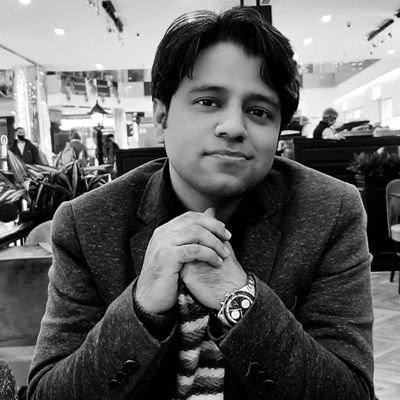
 Saquib Salim
Saquib Salim
In recent times I have found people, about whose knowledge of societies, cultures, and nations I have no clue - debating the dichotomy between the two identities - Indian and Muslim. Being an Indian Muslim is as natural as being an Arab Muslim, or Turkish Muslim, Moroccan Muslim, French Muslim, or any other race/nationality who has professed Islam as a religion.
I was unaware of any dichotomy between the two until I entered college. My grandfather, an Islamic scholar, told us that our ancestors were Gaur Brahmins; thus after they accepted Islam as their religion people started calling them Gara. He told us that until the 1920s, when the Indian National Movement was also infected with divisive politics, Pandits from Haridwar would visit villages with their record books to collect money for the rituals for the deceased forefathers of the community.
The acceptance of the fact that our forefathers were Brahmins did not stop him from being a devout Muslim. He would pray five times a day and fast all thirty days of Ramazan even in his 90s. The Gara community of West Uttar Pradesh boasts of producing some of the most well-known Islamic scholars, professors, etc. The people of this community never shied away from their roots in India and their adherence to Islam. Many people put Gaur as their surname.
Since my childhood, I have seen Muslims with surnames like Pundir, Tomar, Chaudhary, Tyagi, etc. They all trace their roots to Indian ancestors who had accepted Islam.
I am writing in pain after reading some recent social media trends where the right-wing Muslims and the right-wing Hindus tell us that Muslims are one nation (or Ummah) and therefore cannot be Indians in the true sense.
Maulana Ubaidullah Sindhi, one of the most respected Ulema from Deoband School, used to say that his ancestry should not be a roadblock in his position as an Islamic scholar. Once he wrote that if asked he would tell that his father was Ram Singh and his grandfather was Jaspat Rai. It never stopped his rise as one of the leading Islamic scholars. He led a movement of Islamic scholars into the Indian Freedom Struggle and allied with Raja Mahendra Pratap, Netaji Subhas Chandra Bose, and others.
Does this mean that Muslims whose ancestors are from Arabia are less Indian? Vinayak Damodar Savarkar, one of the original ideologues of Hindutva, said: “The original antagonism between the Hindus and the Mahomedans might be consigned to the Past. Their present relation was one not of rulers and ruled, foreigner and native, but simply that of brothers with the one difference between them of religion alone. For, they were both children of the soil of Hindusthan. Their names were different, but they were all children of the same Mother; India, therefore, being the common mother of these two, they were brothers by blood.”
One of my Grandfather's best friends was Tau Parbhu, a Punjabi Hindu who came to Muzaffarnagar after the Partition of India in 1947. These two families still take part in each other's rituals, weddings, festivals, etc. Tau Parbhu’s sons are family to us. His other friend was a devout Jain businessman.
Grandpa would say that humanity is more important than anything else. Today people on social media ask why most of the Muslims didn’t migrate to Pakistan in 1947 but for my grandfather, it was a stupid question. Why leave one’s home? In those years, he was influenced by Maulana Husain Ahmad Madni, who campaigned against the Partition because they believed that religion could not be equated with the nation.
ALSO READ: Assamese Muslims celebrate their unique identity and culture
When someone asks me if I am a “nationalist Indian Muslim” I, mostly, do not reply. A senior Indian political thinker once told me during a conversation that faith should not be debated. We debate on issues where we are open to changing our stand. There is no scope for change in one’s religion and love for his country.
